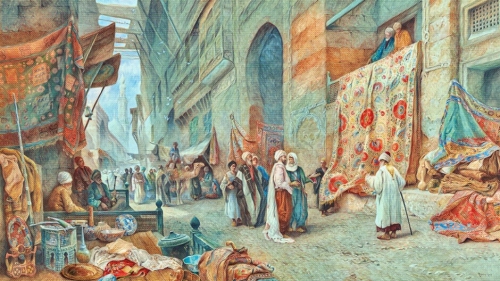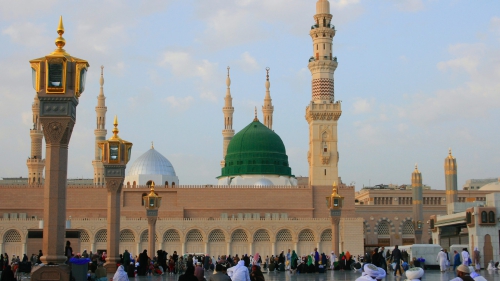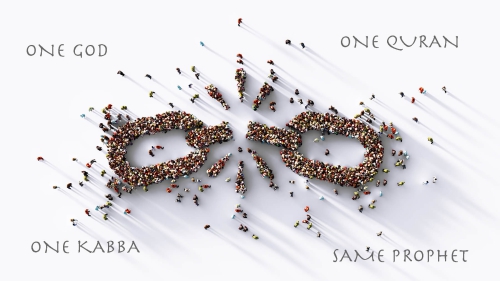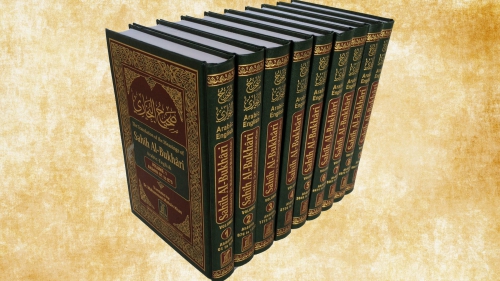Ya Muhammad: Give Me Some of What You Have
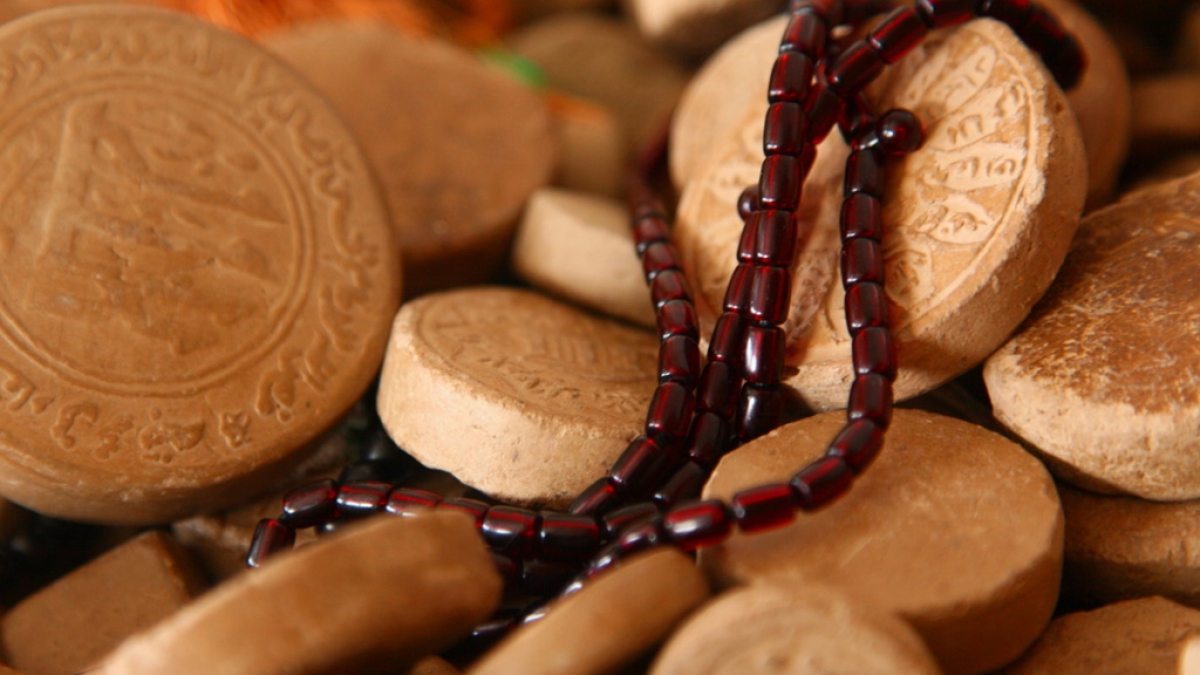
The Prophet was returning to his house, accompanied along the way by Anas ibn Malik. We can imagine how he felt upon approaching the door of his home after a particularly exhausting day disseminating the message of Islam and managing the affairs of his community. He wanted nothing more than to rest in the informal comforts of his home.
He was wearing a simple, coarse cloak with an unfinished hem, which was barely more than a large rectangle of cloth which he draped over his shoulders and slung around his neck. Its trailing edge hung down his back.
Finally, he reached the door to his house and was just about to enter when a desert dweller came rushing up to him. When he reached the Prophet
he yanked the trailing edge of his cloak from behind. The Prophet
was startled by the force of the pull and staggered backwards, barely staying on his feet. The cloth actually tore from the strength of the pull, and what was worse, since it was slung about the Prophet's neck, it tightened around his throat. The strength of the pull had a visible effect upon the Prophet's neck.
We would expect at this point that the desert-dweller would realize his mistake, let go of the cloak, and apologize to the Prophet . We would then expect to hear that the Prophet
, being the generous-hearted man that he was, would just as readily forgive him - and that would be that.
This is not what happened.
Instead, the desert dweller spoke up: "Ya Muhammad!" - a crass manner of address indeed! Where is the basic respect that the Prophet deserves?
"Ya Muhammad! Give me some of what you have of Allah's wealth."
What Would You Have Done?
Any one of the desert-dwellers actions is enough to make one of us livid with anger
Now, please take a moment to imagine how any normal person would react to being handled in this way - to being all of the sudden accosted by a ruffian who pulls your clothing from behind, causing you to stagger and choke (not to mention ruining your clothes) and who then, without any apology, has the audacity to ask you for money in a most unmannerly fashion. Any one of the desert-dwellers actions is enough to make one of us livid with anger.
How did the Prophet react?
Anas tells us: "Allah's Messenger turned his face to the desert-dweller and smiled. Then he gave instructions for the desert-dweller to be given some charity." (Al-Bukhari)
This incident tells us something very important. This is not just a case of self-control. It shows us something above and beyond good-natured clemency and generosity. There is something far more important in operation here.
The encounter with the desert-dweller was a sudden thing. There was no time for the Prophet to think about how he was going to respond. There was no time for him to collect himself, check his anger, and put on a cheery face. Any angry reaction - which is what we would naturally expect - would have come as quickly as the desert-dweller's assault.
However, the Prophet's immediate reaction was not at all what we would expect. The prophet did not act according to Newton's Law - for every action there is an equal and opposite reaction. He showed unimpeachable good manners.
It is as Allah says: "Indeed, you are of immense good conduct."
Further Reflections
The perfect harmony between word and deed is one of the Prophet's exemplary character traits
What amazes us is that the Prophet's smiling face was his immediate reaction to the ruffian's disrespect. The Prophet's response shows a presence of mind, composure, and an exercise of self control that there was simply no time for. His turning his face to the man shows concern. His smile shows welcome, and his generosity shows a concern for that person's needs. But all of this came about as an immediate reaction from the Prophet . It was instinct.
This shows us that we can condition our hearts so that our gut reactions coincide with our deliberate thought-out actions. We can acquire mastery over ourselves to such an extent that we actually cultivate and shape our instincts.
The Prophet once advised someone repeatedly by saying: "Do not get angry." He also said: The strong person is the one who can control himself when he is angry."
Here we see perfect harmony between words and actions. It is one thing to speak about controlling one's anger. It is another thing to exhibit such self-control when caught off guard. The perfect harmony between word and deed is one of the Prophet's exemplary character traits that makes him the perfect role-model for the believers.
This anecdote about the desert-dweller tells us something else of vital importance. We might also ask: What is it which made the desert-dweller think he could act in that way? How could he think that he could go up to the head of state and the leader of the religious community - right in the middle of the that community - yank the Prophet's cloak and ask him for money like that? Sure, he was an uncouth desert-dweller. But he should have at least felt afraid to behave the way he did. He should have feared the Prophet's reaction or that of the community.
However, the desert-dweller knew he had no reason to fear. He felt perfectly comfortable approaching the Prophet in a way that was familiar and natural for him. The desert-dweller knew he could be himself. He felt that since he had a right to charity, he could just go up to the Prophet and demand it.
This shows us what living in the Prophet's community was like. It was a society where people did not live in fear. They could be themselves. The Prophet's kindness, generosity, and good-natured ways were taken for granted. The desert-dweller, in all his coarseness, never expected anything from the Prophet (peace be upon him) but what was best.
Source: OnIslam - Sheikh Abd Al-Wahhab Al-Turayri








